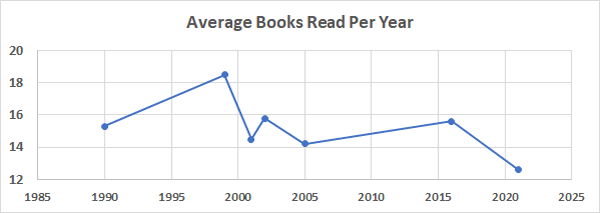“Reading is to the mind what exercise is to the body.” – Joseph Addison, 17th Century English writer
I joined the ranks of avid readers several years ago. This decision was driven in part by a thirst for knowledge to improve my ability to enjoy my senior years in good physical, cognitive, and mental health. I’ve been bowled over by the wealth of accessible, evidence-based materials to satisfy this thirst! It was also motivated by a quest for engaging entertainment that would prevent overindulgence in streaming video and settle my mind in the hours before bedtime.
The public library system has proven to be a magnificent resource for my reading habit. With on-line access to the Washington County Cooperative Library Services, I can order a book, CD, or movie from any of the participating local libraries and have it delivered to my home library. I can also borrow eBooks and audiobooks using my electronic devices. I can put books on hold and wait for their arrival (and even pause receipt if I’m not quite ready). And the app lets me keep track of books I might like to read.
Having declared my interest in reading, I’ve gotten lots of recommendations from fellow readers on what to read. They introduce me to material I might not have found on my own. And, of course, we get to talk about books once I’ve finished reading them. I’m especially pleased when I find book series that I enjoy as it makes it easy to figure out what to put on hold at the library!
My uptick in reading flies in the face of Gallup research that suggests Americans’ reading habits are on the decline.
I’m not surprised. As noted in a prior post, Americans watch a smidge over four hours of television per day and log another six hours on the Internet via computers, notebooks, SmartPhones, and tablets. That’s a lot of screen time! It’s easy to fall into the trap of staring mindlessly at the boob tube when streaming services automatically play successive episodes (or suggest other shows and movies). Internet content proves likewise addictive… by design. But at the end of the day, it’s not all that stimulating. Many of us are checking multiple devices concurrently to avert boredom with regular breaks to prepare snacks. Not so good for physical, cognitive, or mental health!
By contrast, when I settle in with a good book, I’m completely engrossed in the narrative. I picture all the characters in my mind’s eye and see all the scenes where the action is taking place. I can’t wait to read what comes next. I enjoy entering the characters’ inner dialog to see what they’re thinking and discern what drives them. There’s a richness there that you just can’t get on film. And, of course, I just love great writing.
Research affirms several tangible benefits of reading:
- Fiction readers demonstrate a superior ability to process, store, and apply information about other people and social situations. Neuroscientists theorize that this proficiency relates to the fact that reading fiction and social cognition both recruit the brain’s default network, a neuro structure that supports our ability to simulate hypothetical scenes, spaces, and mental states.1
- Reading fiction correlates positively social ability; non-fiction readers d not enjoy a similar boost.2
- Reading promotes vocabulary development.3
- Reading, yoga, and humor all have salutary effects on stress.4
- Bibliotherapy has proven effective in managing depression.5
- People who read books tend to live longer.6
- Reading is associated with reduced risk of cognitive decline in older adults.7
With all these benefits close at hand, isn’t it time to pick up a good book?
References:
- <https://academic.oup.com/scan/article/11/2/215/2375122
- https://www.sciencedirect.com/science/article/abs/pii/S009265660500053X
- <https://pubmed.ncbi.nlm.nih.gov/21772058/
- https://www.researchgate.net/publication/229431397_Stress_Management_Strategies_For_Students_The_Immediate_Effects_Of_Yoga_Humor_And_Reading_On_Stress
- https://www.sciencedirect.com/science/article/abs/pii/S0272735817302908
- https://www.sciencedirect.com/science/article/abs/pii/S0277953616303689
- https://www.ncbi.nlm.nih.gov/pmc/articles/PMC8482376/
